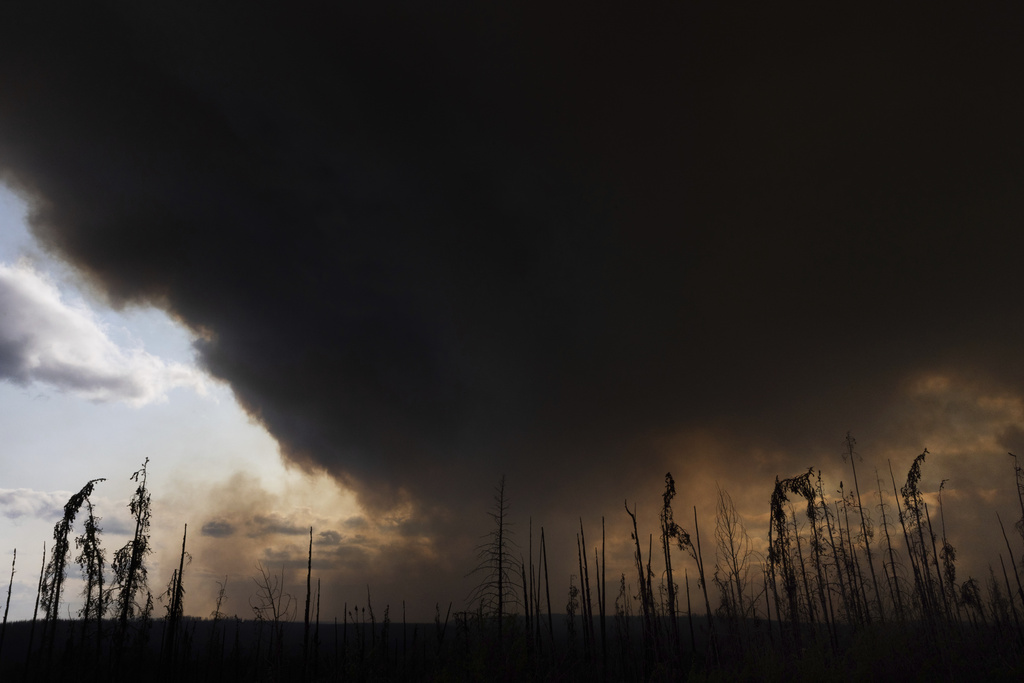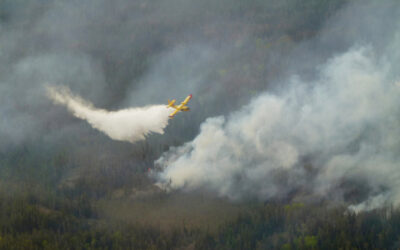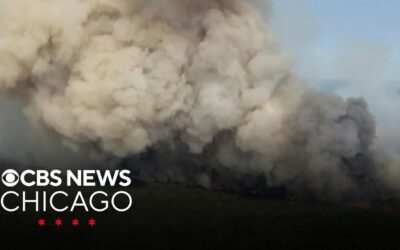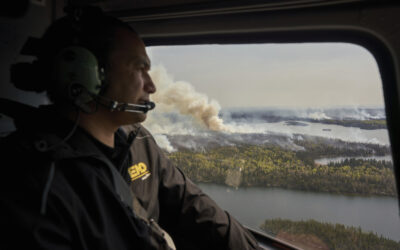
Wildfire smoke hangs in the air above Highway 97 north of Buckinghorse River, British Columbia, on Friday, May 30, 2025. (Nasuna Stuart-Ulin/The Canadian Press via AP)
Air quality in Michigan continues to suffer from ongoing wildfires in Canada while warm and dry conditions stateside have allowed a fire in the Upper Peninsula to ravage several acres of Michigan woodland since Sunday.
The Michigan Department of Environment, Great Lakes and Energy (EGLE) has issued an Air Quality Advisory through Tuesday for 15 counties in Upper Michigan, warning that elevated levels of fine particulate could make the air unhealthy for people with sensitivities.
State officials said an approaching cold front may provide some relief when it passes over Michigan on Wednesday, bringing likely rain showers and potential thunderstorms.
In the meantime, Michiganians can expect skies that are “mostly clear but show shades of gray to brown rather than blue due to the elevated smoke,” EGLE said on its Air Monitoring webpage.
As of Monday night, there were 196 reported fires across Canada, including 103 characterized as being “out of control,” according to the Canadian Interagency Forest Fire Centre. British Columbia (67 fires) and Alberta (52) had the most active fires. Closer to Michigan, 25 fires were active in Manitoba with another 19 in Ontario.
Meanwhile in Upper Michigan, firefighters in Dickinson County were trying to contain and extinguish a fire that had been burning a heavily wooded area about 14 miles northeast of Iron Mountain since about 8:30 p.m. Sunday, the Michigan Department of Natural Resources said.
“Firefighters were battling the fire (Sunday) night over a rock outcropping, in an area of mixed hardwoods and large pines,” Keith Murphy, a Michigan DNR fire specialist at the agency’s Incident Coordination Center in Harvey, said in a statement. “About 5 to 6 acres have burned.”
Officials said nearly three dozen firefighters were battling the blaze on Monday. People were advised to avoid the area and a temporary flight restriction was put in place, banning drones and private aircraft from the vicinity.
The cause is still under investigation.
The National Weather Service issued a “Red Flag Warning” for the western half of the Upper Peninsula on Monday. Hot, dry and breezy weather created “an ideal environment for rapid fire growth and spread,” the warning stated. On Tuesday, the dry conditions and gusty winds will elevate the danger of wildfire into Lower Michigan as well.
The NWS urged people in the affected areas to avoid outdoor burning and to immediately report any wildfires by calling 911.
“Please match the extreme fire conditions with an extreme use of caution with any source of fire,” said John Pepin, DNR deputy public information officer in Marquette. “The largest proportion of wildfires are caused by human-related activities.”
As many as 10,000 Canadians have been forced to flee their homes as ongoing dry, hot weather allows dozens of fires to spread across the country, the Associated Press reported.
Saskatchewan Premier Scott Moe said with resources stretched thin, it will take a major rain to slow the fires.
Canada’s wildfire season continues through September. During a particularly troublesome season in 2023, drifting smoke from Canada caused a haze over much of the northeastern U.S. and the Great Lakes region, prompting warnings for people to stay inside and keep windows closed.
©2025 The Detroit News. Visit detroitnews.com. Distributed by Tribune Content Agency, LLC.




